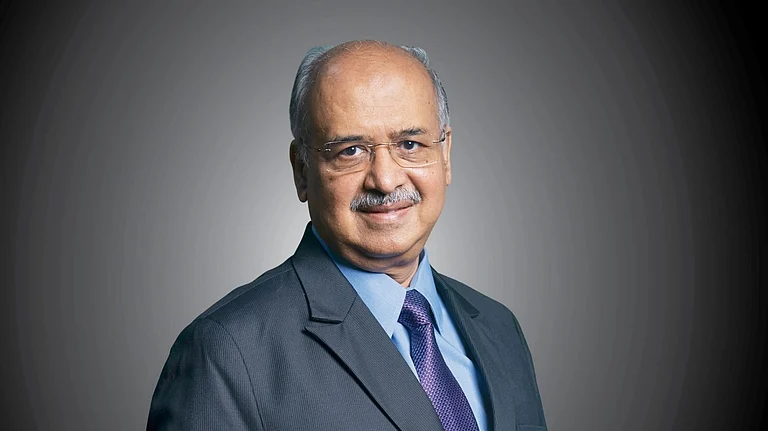Round the globe, hedge funds form a major portion of high net worth (HNW) investor portfolios. In India, the Securities Exchange Board of India (Sebi) opened the doors to hedge funds in July 2012 through the alternative investment fund (AIF) norms. So far, a dozen hedge funds have registered with Sebi. The funds use alternative strategies largely uncorrelated to the market to build portfolios of debt, gold, art, equity, and currency derivatives. Says Andrew Holland, chief executive officer (CEO), investment advisory, Ambit Investment Advisors: “If you invest in equity mutual funds and the market falls by 5 per cent, your investments would fall too. But a hedge fund makes absolute returns whether the market is going up, down or sideways.” Traditional investments inherit the market’s volatility due to their correlation to markets. So, hedge funds have started garnering investments.
The sum and substance
Hedge funds are quantitatively-managed, actively-managed or event-driven. The first one uses computer-based algorithms to decide which securities to buy and sell. The second one uses long-short strategies where fund managers take buy and sell decisions simultaneously. The third one is an opportunistic strategy where fund managers exploit events, such as mergers, buybacks and corporate acquisitions while making investment decisions. What distinguishes hedge funds from others is alternative strategies. Mutual funds (MFs) and portfolio management services (PMS) are essentially long-only investments and cannot offer alternative strategies. Hedge funds get a major portion from derivatives, which derive value from equity or currency, and, so, are complex and risky. As such, Sebi has set an investment size of Rs 1 crore to keep them out of public reach. For hedge funds, investors have to pay a performance fee, upfront commission of about 2 per cent and annual management fees of 1.5-2.5 per cent. Any deviation from this cost structure needs to be probed. Also, they can go for either a combination of management and performance fee, or just a performance fee.

Hedge your bets right
Do note that hedge funds, unlike MFs, differ significantly from one another. So, comprehend the underlying strategy and nuances of investment. Also, look at the pedigree of fund management and make sure strong custodians and auditors back these managers. Ideally, one should look at the performance record of the fund. But, in India, hedge funds lack a long record as they came about just two years ago. Says Nishant Agarwal, senior director and head, products and family office advisory, ASK Wealth Advisors: “So, these funds conduct back testing of data, in other words, if the fund would have run the same strategy in the past, what would have been the performance. This strategy performance is shown to investors through back-tested numbers.” Next, one should ask the fund managers about the implications of worst-case scenarios. Says Swapnil Pawar, chief investment officer, Karvy Capital: “Investors should look at the number of negative months, quarters, or years, drawdown (peak-to-trough decline during specific periods of investment), the period taken to recover from drawdown, and volatility of monthly or quarterly returns.” Another factor to track is how correlated the investment strategy is to the markets—it should be as close to zero as possible. In the disclosure document, go through the sponsor commitment (5 per cent of the total corpus or `10 crore, whichever is less), exit loads and conditions, and liquidity conditions.
Dwell on performance
Once invested, review the fund performance regularly. Says Ashish Shankar, head-investment advisory, Motilal Oswal Private Wealth Management, “In India, most AIF funds have delivered better risk-adjusted returns compared to the Nifty.” At the time of investing, build a set of expectations regarding investment in terms of average quarterly returns, worst quarterly returns, drawdown, volatility and correlation with equity markets. Also, track the fund’s performance on these parameters. Adds Pawar: “Any fund would go through good and bad periods. But, if the bad quarter is worse than the worst quarter in its history; then it’s worrisome.” In case of any express malafide in your investments, file complaints on Sebi’s online grievance redressal forum—SCORES, a common platform to complain against any intermediary registered under the regulator. A fair amount of ambiguity exists on the taxation front since the income tax department has not come out with any specific guidelines. Adds Pawar, “Taxation is similar to those meant for trusts and limited liability partnerships.” In most cases, the trust pays tax according to its business income. So, when an investor redeems, he will receive his funds net of tax. Investors should consult their tax advisors for further clarity.
In a nutshell
Hedge funds, as the name suggests help hedge against market risks by employing strategies that remain unaffected by market movements. Experts recommend that niche investors hold 5-10 per cent of total portfolio in alternative strategies, which complement the core longonly investments very well. A hedge fund would expose your portfolio to a new risk-return profile leading to advanced level of diversification provided you invest in measured steps.


























